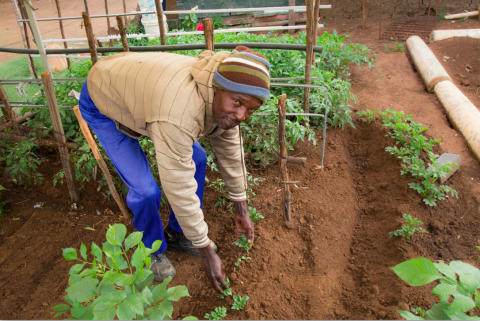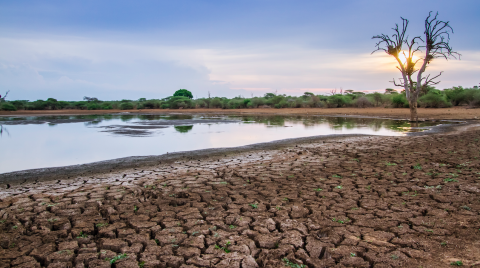Sunday Times Green
No Green Islands
Cynics are often tempted to write off corporate giving to environmental causes as “greenwash”. After all, they argue, oil and mining companies are major donors of organisations such as The Nature Conservancy, by far the biggest charity of its type to receive corporate funding in the US.
But there’s a growing realisation among the corporates themselves that sustainable values aren’t just good for public image, they’re becoming a business imperative too. And the best way to achieve their goals is to work in partnership with experts already in the field.
Feroz Koor is the head of sustainability at Woolworths, which has been a partner of World Wildlife Fund – South Africa (WWF-SA) in its programme for clearing alien invasive plants in the Upper Breede River catchment area. Koor says that there’s a good reason for a company like Woolworths to be involved.
“We rely on a steady and clean supply of water across our value chain especially in the farming of our fruit and vegetables,” Koor says. “Consequently, it is critical for us to join forces with NGOs like WWF who are working with government, catchment agencies and landowners, many of whom are our suppliers, to release more water into our rivers.”
Nedbank, too, has been a key support of the WWF-SA’s water sustainability and management programmes since 2011.
“All responsible corporate citizens have a responsibility to play a role in addressing issues of water quality and water access, droughts and floods, wildfires and heat waves, because all of these pose systemic challenges to citizens across the world,” says Brigitte Burnett, head of sustainability at Nedbank.
Addressing these issues means more than just throwing money at a problem but getting into the nitty-gritty of knowledge sharing.
“Lessons can be shared across sectors and between corporates and organisations, and corporates can go beyond financial support to offer other relevant expertise, resources or support they may have,” says Burnett.
She says it’s important to understand your company’s own impact and scope, and ensure your corporate strategy is based on a “whole society” approach.
“Ask what type of data is gathered, how often and what measurement criteria are used,” she says. “Initiatives should include projects that form part of a collective development
effort and which are linked to clear outcomes and indicators.”
In this, Burnett echoes one of the tenets of the world’s largest philanthropic organisations, the Bill & Melinda Gates Foundation, which has always held that corporate knowledge around measuring impact and driving efficiency is much needed in the NPO (non-profit organisation) world.
Broad support
Jules Newton, of social enterprise Avocado Vision, is the programme director of the Green Business Value Chain (GBVC) – a government and business partnership that works with the Department of Environmental Affairs. GBVC’s work is also focussed on partnerships to clear alien invasive plants from waterways.
Newton says that corporate interests can be closely related to sustainable goals.
“If there were no invasive aliens in the Western Cape, there would be no drought,” Newton states, “and what many corporates have come to realise is that they share the risk of fires and floods.
“Everyone is paying for the Knysna fires now, as insurance premiums have increased, for example. But while corporates know we have a water problem, they don’t necessarily know how to solve it – and that’s where these partnerships are so useful.”






 Sign-up and receive the Business Media MAGS newsletter OR SA Mining newsletter straight to your inbox.
Sign-up and receive the Business Media MAGS newsletter OR SA Mining newsletter straight to your inbox.